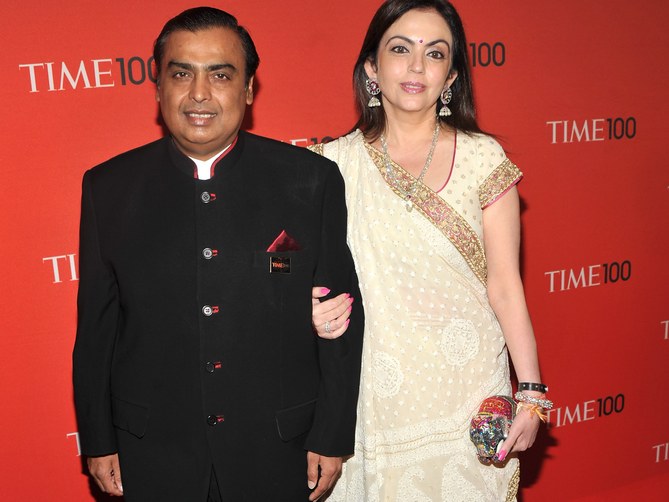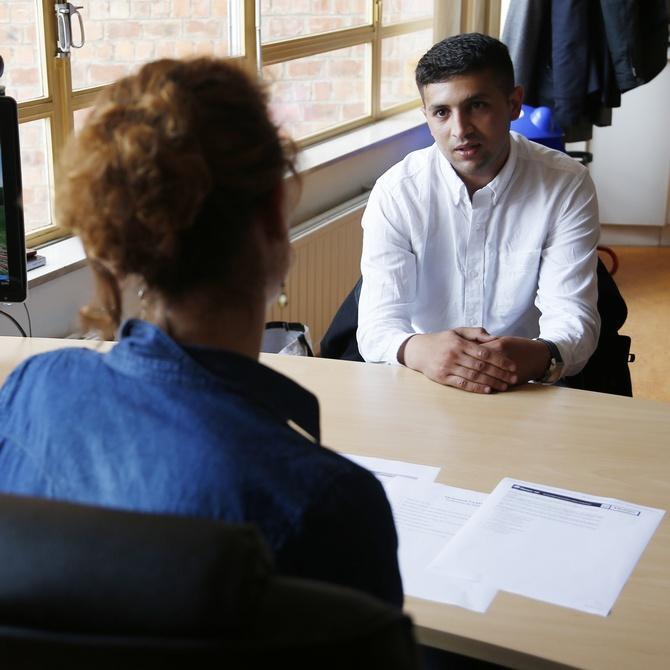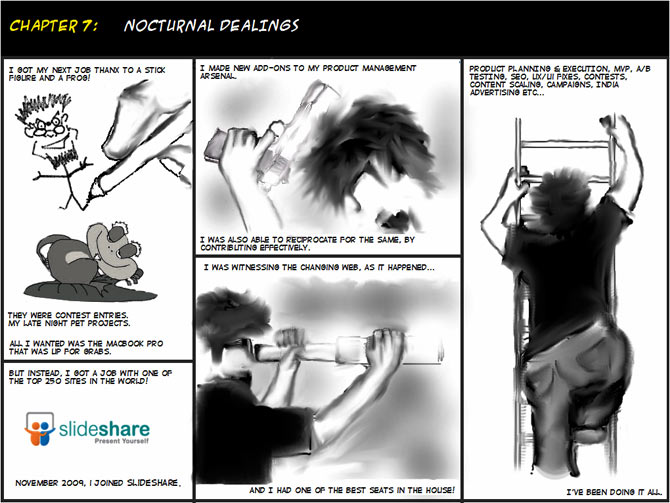This article was first published 11 years ago
10 things we wished interns knew
Last updated on: January 14, 2014 10:31 IST
Image: Don't think twice before doing whatever is thrown at you in your internship.
Photographs: Danish Siddiqui/Reuters
- Don't be stuck up
- Lower your expectations
- Focus on what you can learn from your stints at various organisations.
Internships are slowly but surely becoming a norm rather than an exception. As part of an ongoing series, we asked Rishabh Gupta, the CEO and Co-Founder of Letsintern.com, one of the most prominent job portals exclusively dealing with internships on things he wished interns knew.
Also in this series
What to expect when you're interning
How to convert you internship into a job
Findings of a recent British Council research on the South Asia Paradox of 'high university enrolment, low graduate employment' recommended compulsory internships, among other things to resolve the much-talked about employability concerns in South Asia.
Gone are the days when vacations in-between colleges meant only chilling out and hanging out with friends.
As in many countries, summer internships are becoming a rule than an exception in India too.
Keen on getting an early start, students are increasingly looking at internship opportunities in companies small and large.
Rishabh Gupta is the CEO and Co-Founder of Letsintern.com, one of the most prominent job portals exclusively dealing with internships.
On its website, Letsintern.com advertises over 18 lakh opportunities across 4,000-plus organisations including Tata, HCL, Adidas, Pepsico and the World Wildlife Federation among others.
Gupta has this advice for young interns:
1. Don't be stuck up about what you want to do
This holds true more so if it's your first internship.
Internships are supposed to help you explore possible career options.
Be open to the kind of role you are offered. Be prepared to explore. Because if you can't be open-minded and willing to explore possibilities at the beginning of your career, when else can you be?
All images used here are for representational purposes only
Image: Remember you are the bottom of the food chain. There is a good chance that you will have little impact on the way an organisation works.
Photographs: Reuters
2. Lower your expectations
- Many interns believe that will be able to affect change and do great things in the organisations that hire them.
- Remember, you're way down the pecking order and so there is a good chance that you will have little impact on the way an organisation works.
- Tone down your expectations from your internships.
- Focus rather on what you can learn from your various stints.
Image: Unlike Kishan Shrikanth who was named the youngest director of a professionally made feature length film by the Guinness World Records in 2006, Few young professionals have a clear career objective when they're young.
Photographs: Jagadeesh NV/Reuters
3. If you don't have a clear career objective at 18, it is OKAY!
- Many young applicants struggle when they have to write their career objective.
- When they can't come up with anything, most of the resort to writing in cliches like: 'I hope to learn, contribute and succeed and while I grow personally, also contribute to the success of the organisation'.
- Here's the thing: You need not fret about career objectives at 15 or 18.
- If you don't have a career objective, leave the column blank.
Image: Avoid highlighting your achievements from way back in your school life
Photographs: Ahmad Masood/Reuters
4. Avoid highlighting your achievements from way back in your school life
- Highlight only those achievements from your school life that you think will be important from the company's perspective.
- If you've won a prize in let's say coding a site and are applying in the IT sector or have won a scholarship for your drawing skills and are applying for a creative job, highlight those achievements.
- But as far as possible, focus on your achievements in the last couple of years.
Image: Before you hand in your resume, ensure you've run a spell-check.
Photographs: Carlos Barria/Reuters
5. Before sending off your CV, run a spell-check
- Most interns are so used to texting they don't realise that language makes its way into their resumes and email conversations too.
- Know that there is a difference between sending an SMS and an email. Ensure your covering letter doesn't have errors and isn't very long.
- Do not write more than one or two paragraphs introducing yourself.
- As many as 50 per cent of the CVs we receive have simple English mistakes that can be avoided by simply proof-reading it or simply running a spell-check!
Image: So your dad's in the Time 100 list? We don't really want to know.
Photographs: Stephen Lovekin/Getty Images
6. We really don't want to know what your parents do!
- Several interns mention their parents' profession in their CVs. This is avoidable because companies are hiring you not your parents.
- No one wants to look at your parents' credentials in your CV.
- By mentioning your parents, the message you give you is you aren't confident and fall back on them for backup.
- Also, recruiters go through tons of CVs every day. If they do not see relevant information upfront, there are good chances you they will reject your application even before they see it.
Image: People skills and communications skills are all very great but know that they need not always form part of your core competency.
Photographs: Francois Lenoir/Reuters
7. Soft skills are great but...
- Everyone writes about people skills and communications skills. But these are soft skills and need not necessarily form part of your core competency.
- I find that a lot of students studying design and technical courses are clearer about their skill-sets. This isn't the case with many liberal arts students who tend to have open ended courses.
- Ask yourself what you are really good at, what you are passionate about and talk of that instead.
Image: If you count reading as your hobby, be prepared to field questions about your favourite authors and books.
Photographs: Miguel Vidal/Reuters
8. Don't mistake fascination for a hobby
- Reading, travelling and music are the most oft-listed hobbies in CVs. But rarely are they substantiated in interviews.
- If you list reading, you should be able to take questions on authors and their books. Ditto for music -- if you're listening to just as much music as your other friends, avoid writing about it. This holds true for any other hobby you've listed in your resume.
- Pursuing a hobby assumes certain depth about the subject. If in an interview, you are unable to take questions about what you follow, you leave a terrible impression on your interviewer.
Image: Unless it demonstrates your specific talent, avoid creative resumes.
Photographs: Courtesy Oxygenflow.net
9. Avoid creative resumes
- So you've read about that guy who got himself a job because of his super-creative resume and you want to replicate it? Unless it demonstrates your specific talent, do not do it.
- Surely creative resumes make you stand out, lend you that exclusivity but know that they do not work all the time.
- It makes sense to have a creative resume if, let's say you're a design student or a tech student who want to show off your programming skills.
- Think of it, how would a creative CV help if you're an economics graduate and are looking for a job in the finance sector or are applying for a job in sales?
- Unless your resume highlights a particular skill, don't try to reinvent the wheel. Stick to the tried-and-tested CV format.
Image: According to Rishabh Gupta, between 25 to 30 per cent applicants forget to enter their contact details.
Photographs: Gustau Nacarino/Reuters
10. Finally, Don't forget your contact details
- Surprised? Good 25 to 30 per cent of the applicants forget to enter their contact details, which leaves us with no choice but to drop their CVs
- A note here about your email ids: Avoid using the cutesy ones you've created in school! Ensure you have a professional-sounding email id.
As told to Abhishek Mande Bhot









